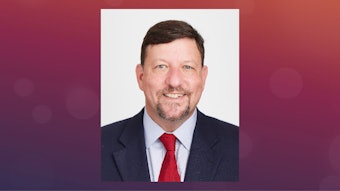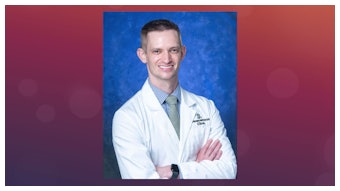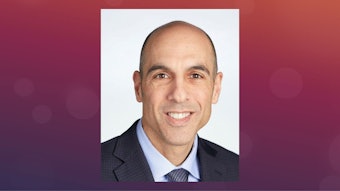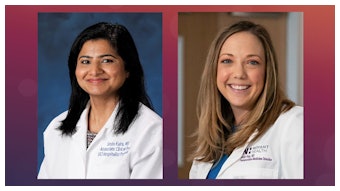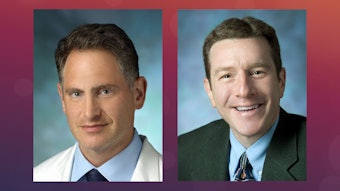Reducing errors, improving care
Experts address ways to recognize and prevent cognitive biases.
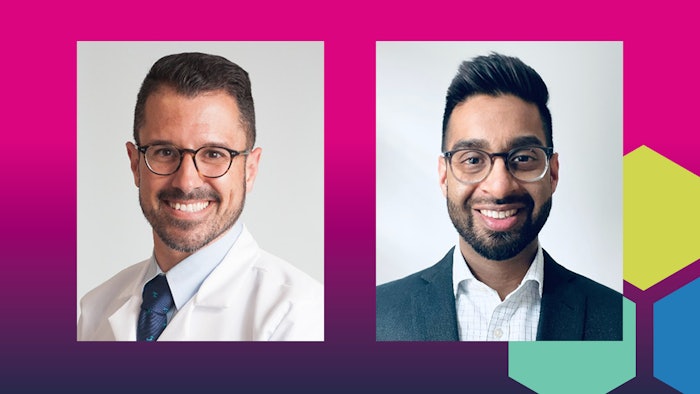
Within the health care setting, about one in 10 patients suffers from an adverse health outcome, such as death, caused by misdiagnosis. This is according to the National Academies of Science, Engineering, and Medicine, cited in the 2015 publication Improving Diagnosis in Healthcare.
Medical errors are often the result of cognitive biases, which can be difficult to observe and mitigate, said Daniel Restrepo, MD, FHM, assistant professor of medicine at Harvard Medical School in Boston.
Dr. Restrepo will be joined by Anand Jagannath, MD, MS, assistant professor of medicine at Oregon Health & Science University in Portland, Oregon, to explore these cognitive biases in Sunday’s session, “Common Inpatient Cognitive Errors in Diagnosis and Clinical Reasoning: Practical Applications for the Hospitalist.”
Brains operate on heuristics, which are formed by the patterns, behaviors and actions that we regularly perform. These cognitive shortcuts are essential for quick decision making and have become necessary in daily life, as they’ve allowed humans to evolve and survive. However, heuristics can lead to error. When this happens, it is known as a cognitive bias.
“While more than 100 cognitive biases have been identified, studies show that premature closure is the most common cognitive bias that results in misdiagnosis,” said Dr. Restrepo. “This results when an initial diagnostic impression is accepted as the final diagnosis without considering other plausible diagnoses.”
Search satisfying bias (or bounded rationality bias) and confirmation bias are also common throughout the care continuum. Search satisfying occurs when a clinician ends the search for additional diagnoses once the first supportive piece of diagnostic data becomes available without questioning the validity of the diagnosis. Confirmation bias involves disproportionately weighing data, or evidence, that corroborates the desired diagnosis while simultaneously disregarding contradictory evidence.
“[The confirmation bias] leads physicians to see what they want to see,” wrote the authors of a 2020 paper published in the AMA Journal of Ethics. “Since it occurs early in the treatment pathway, confirmation bias can lead to mistaken diagnoses being passed on to — and accepted by — other clinicians without their validity being questioned, a process referred to as diagnostic momentum."
Many people, including physicians, have not learned how to identify cognitive biases or aren’t accustomed to accounting for them within their professional practice. Additionally, said Dr. Restrepo, hospitalists can easily become bombarded or immobilized by their work environment.
“These distractions may include a large patient census, fatigue from working long hours, or communication barriers such as language or culture,” he said. “While error may be difficult to avoid in these conditions, hospitalists can take steps to increase their awareness of the cognitive diagnostic process by incorporating intentional pauses and practicing metacognition — or rather, thinking about your own thinking.”
Metacognitive exercises can prepare hospitalists for situations where they are more prone to unconsciously relying on their cognitive biases. Drs. Restrepo and Jagannath have many suggestions for hospitalists to improve their practice and reduce errors.
One such recommendation is to find a consistent action or practice that occurs throughout the day that can be used for reflection. For doctors, this could be the medical note.
“Given that we all write [notes] every day, it can present a powerful built-in moment for analytical reasoning wherein we narrate our thinking,” said Dr. Jagannath.
Both doctors also advise cultivating curiosity and following up with patients post-discharge. This habit of checking in and revisiting cases, they said, provides the opportunity to analyze errors or find new solutions that will improve future patient care.
“Asking simple questions such as, ‘Why is my patient’s potassium so low?’ can often lead to significant headway in establishing the primary diagnosis for the admission or in uncovering an unrelated, but previously unsolved, issue,” Dr. Jagannath said.
“Hospitalists have a unique privilege of taking care of people with a high degree of complexity and acuity,” Dr. Restrepo said. “We have an opportunity to serve patients by scrutinizing their symptoms as well as our own thinking to arrive at accurate diagnoses. By making periodic adjustments to how we think and practice medicine, hospitalists can lead the charge in reducing diagnostic error.”
Visit SHM Meeting News Central for more coverage.


